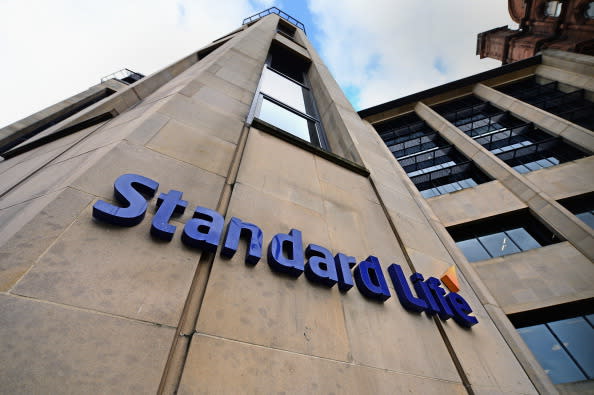Standard Life and Aberdeen merger triggered by rise in passive management?

The announcement Standard Life and Aberdeen plan to merge creating one of the largest global active management firms in Europe running £660 billion is important.
But what has triggered the merger?
Over the years, we have seen the rapid rise in passive management with money flowing out of actively managed funds and into passive funds. Will this trigger more M&A activity in the active asset management industry?
The passive versus active management discussion has been ongoing. Recently, the passive fund market has been growing rapidly taking a larger market share and creating more competitive pressure for the active fund management industry.
So what are passive funds?
Passive portfolio management is a strategy which involves a exchange traded fund (ETF) to track the performance of an index, commodity or a basket of assets.
These funds are run by computers that simply track a market. One of the reasons these funds have become more popular with investors is due to the low fee structure of an ETF.
Global leaders such as BlackRock iShares and Vanguard dominate the passive market and over the past few years more and more money has been pouring into their passive funds.
Fees and transparency are important issues
ETFs are not only low cost and more tax efficient they also offer diversification.
Laith Khalaf, senior analyst at Hargreaves Lansdown says, active managers are feeling the pinch when it comes to fund charges.
“Thanks to the gauntlet laid down by the passive price war, and by targeting £200 million of annual cost savings, both companies will go some way to relieving some of that pressure on the bottom line. However that does unfortunately spell job losses for the combined group,” says Khalaf.
Expect more M&A activity in asset management?
Last year, we saw UK asset management firm Henderson Global Investors and the US rival Janus Capital announced their intention to merge in a £5 billion deal. Can we expect more consolidation in asset management? There is no doubt the asset management industry is struggling and we should expect to see more M&A across the industry.
International exposure
Khalaf says: “Aberdeen’s emerging markets focus dovetails well with Standard Life’s capabilities in developed markets, though there are considerable areas of overlap between the two fund groups, particularly in multi-asset, fixed income and property strategies.”
Written by London-based journalist Tanzeel Akhtar. Her work has been published in the Wall Street Journal, FT Alphaville, CNBC, Citywire, Euromoney, Interactive Investor.
Disclaimer: The content on this page does not constitute financial advice and is provided for general information purposes only. Nothing on this page should be regarded as an offer to conduct investment business or to buy/sell any investment.

 Yahoo Finance
Yahoo Finance 
